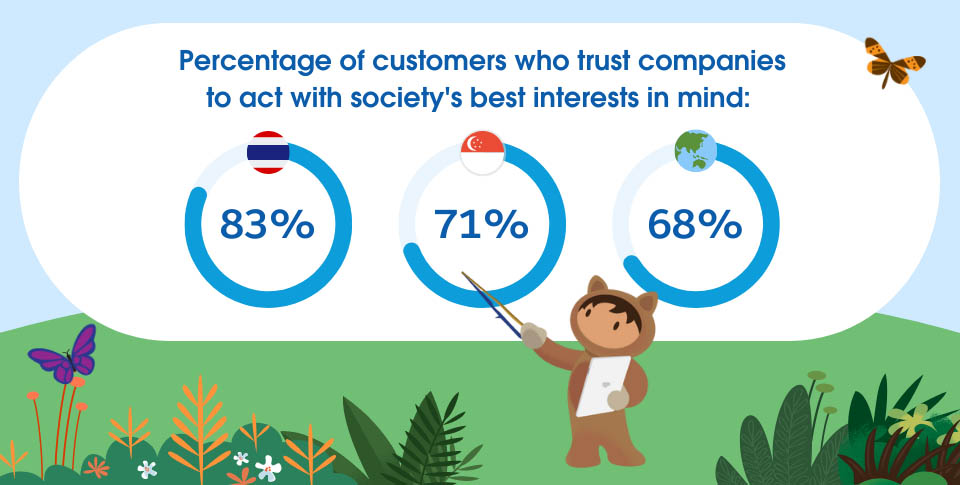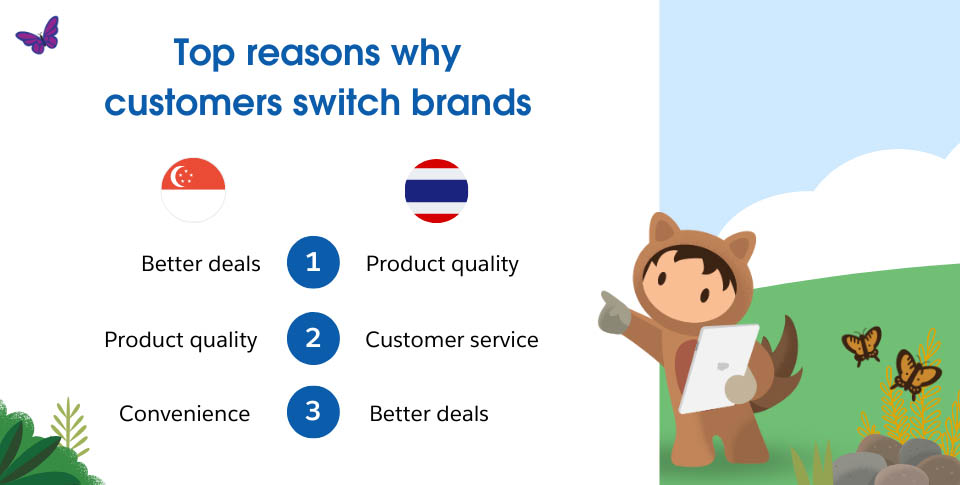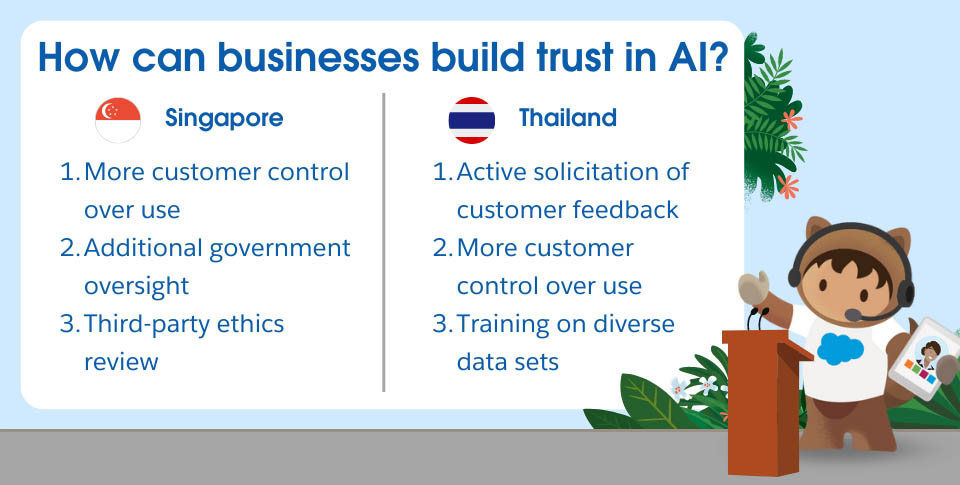The fifth edition of Salesforce’s State of the Connected Customer report reveals how trust, personalisation, and digital-first experiences are increasingly central to meeting customer needs. Based on a global survey of consumers and business buyers, the report also highlights how customer expectations and behaviours have changed over time.
Brian Solis has one critical piece of advice for businesses undergoing digital transformation: “In times of change, make customers’ needs and expectations your corporate North Star,” says Salesforce’s Global Innovation Evangelist. “Keeping customers at the centre will inspire loyalty and deepen trust.”
But what, exactly, do customers need and expect from businesses today? How can brands earn, maintain, and build customer trust? To find out, Salesforce surveyed over 13,000 consumers and nearly 4,000 business buyers across 29 countries for its latest study, State of the Connected Customer.
Trusted enterprises win the hearts of customers
As customers navigate a rapidly-shifting world, questions of trust, values, and integrity occupy their minds: 91% of business buyers in Singapore and Thailand believe trust becomes more important in times of change.
In addition, customers expect businesses to act responsibly. Sixty-eight percent of customers around the world trust companies to act with society’s best interest in mind — a significant jump from the 59% who agreed in Salesforce’s 2020 survey.

Customers expect companies to help solve issues like inequality or climate change. Solis explains, “When it comes to important issues, companies can’t stand on the sidelines. Your values are an important part of your brand.”
Not doing so risks impacting the bottom line. Salesforce’s research shows that 78% of customers around the world are influenced by a company’s environmental practices. Two-thirds (66%) have ceased buying from companies whose values didn’t align with their own.
The importance of customer experience hits an all-time high
Values aren’t the only factor when deciding whether or not to buy from a company. Increasingly, customers consider whether their interactions with a company are easy and enjoyable. In Singapore, 90% of customers say the experience a company provides is as important as its products or services — the highest it’s ever been.
 Developing customer loyalty has never been more important. In the last year alone, 71% of worldwide consumers switched brands at least once as their priorities, lifestyles, or financial situations changed.
Developing customer loyalty has never been more important. In the last year alone, 71% of worldwide consumers switched brands at least once as their priorities, lifestyles, or financial situations changed. 
Customers are in a decidedly digital-first mindset
Customer interactions with brands are more important and more varied than before. Many of the behaviours that customers adopted during quarantine restrictions are now enduring habits.
“Customers who use contactless payments, AR/VR, and social media shopping — among other habits adopted amid the pandemic — overwhelmingly expect to maintain or increase their use of such digital-first experiences over the coming three years. So this really shows the lasting appeal of digital-first engagement,” explains Solis. “I’m optimistic the next couple years will improve the quality of those experiences as well — that businesses will take hurried, early-pandemic tech investments and thoughtfully integrate them into connected, useful, and satisfying experiences.”
Even as the world opens up and we see a return to in-person commerce, customers are saying that they prefer digital channels. This is particularly true among younger generations.
Demand grows for personalisation at scale
The breadth of new digital touchpoints provides additional data to inform personalised experiences. After years of increased digital engagement, the majority of customers assume companies understand their individual needs, especially given the abundance of personalised insights obtained from customer interactions.
To deliver on these expectations at scale, many companies are turning to artificial intelligence (AI). While customers are increasingly familiar with AI — whether it drives the music playlists they listen to or provides directions from one location to another — they also have some misgivings.
For AI to be effective, businesses need a substantial amount of data as fuel. As use of third-party cookies wanes, companies must find new ways to responsibly collect and use that data.
To feel more at ease, customers want input into how AI is used and opportunities to provide direct feedback on how AI is explained or implemented.
 Solis sees this as an opportunity, “An end to third-party cookies doesn’t mean an end to personalisation: it’s a new beginning. The need for robust first-party datasets ups the ante for companies to earn trust via consent-forward approaches to deliver the experiences customers expect.”
Solis sees this as an opportunity, “An end to third-party cookies doesn’t mean an end to personalisation: it’s a new beginning. The need for robust first-party datasets ups the ante for companies to earn trust via consent-forward approaches to deliver the experiences customers expect.”
When customer information is collected thoughtfully, companies can deliver remarkable experiences and deepen trust at the same time.
New Connected Customer research
Explore State of the Connected Customer data on our interactive Tableau dashboards. Read our report to see what 17,000 consumers and business buyers have to say about trust, personalisation, and the importance of exceptional experiences.
 This post was adapted from the original article at the Salesforce newsroom.
This post was adapted from the original article at the Salesforce newsroom.













![[Illustration] An AI agent helps a customer service rep solve cases.](https://www.salesforce.com/ap/blog/wp-content/uploads/sites/8/2025/06/Agentforce-for-Service-Relaunch-1500x844-1.jpg?w=150&h=150&crop=1&quality=75)







